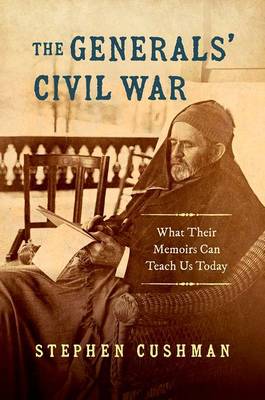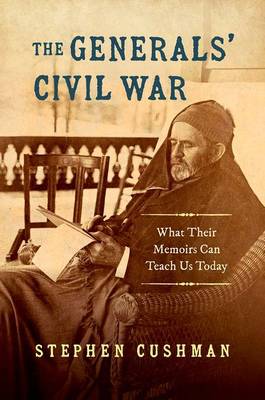
- Retrait gratuit dans votre magasin Club
- 7.000.000 titres dans notre catalogue
- Payer en toute sécurité
- Toujours un magasin près de chez vous
- Retrait gratuit dans votre magasin Club
- 7.000.0000 titres dans notre catalogue
- Payer en toute sécurité
- Toujours un magasin près de chez vous
45,95 €
+ 91 points
Format
Description
In December 1885, under the watchful eye of Mark Twain, the publishing firm of Charles L. Webster and Company released the first volume of the Personal Memoirs of Ulysses S. Grant. With a second volume published in March 1886, Grant's memoirs became a popular sensation. Seeking to capitalize on Grant's success and interest in earlier reminiscences by Joseph E. Johnston, William T. Sherman, and Richard Taylor, other Civil War generals such as George B. McClellan and Philip H. Sheridan soon followed suit. Some hewed more closely to Grant's model than others, and their points of similarity and divergence left readers increasingly fascinated with the history and meaning of the nation's great conflict. The writings also dovetailed with a rising desire to see the full sweep of American history chronicled, as its citizens looked to the start of a new century. Professional historians engaged with the memoirs as an important foundation for this work.
In this insightful book, Stephen Cushman considers Civil War generals' memoirs as both historical and literary works, revealing how they remain vital to understanding the interaction of memory, imagination, and the writing of American history. Cushman shows how market forces shaped the production of the memoirs and, therefore, memories of the war itself; how audiences have engaged with the works to create ideas of history that fit with time and circumstance; and what these texts tell us about current conflicts over the history and meanings of the Civil War.
In this insightful book, Stephen Cushman considers Civil War generals' memoirs as both historical and literary works, revealing how they remain vital to understanding the interaction of memory, imagination, and the writing of American history. Cushman shows how market forces shaped the production of the memoirs and, therefore, memories of the war itself; how audiences have engaged with the works to create ideas of history that fit with time and circumstance; and what these texts tell us about current conflicts over the history and meanings of the Civil War.
Spécifications
Parties prenantes
- Auteur(s) :
- Editeur:
Contenu
- Nombre de pages :
- 240
- Langue:
- Anglais
- Collection :
Caractéristiques
- EAN:
- 9781469666020
- Date de parution :
- 28-09-21
- Format:
- Livre broché
- Format numérique:
- Trade paperback (VS)
- Dimensions :
- 196 mm x 234 mm
- Poids :
- 317 g

Les avis
Nous publions uniquement les avis qui respectent les conditions requises. Consultez nos conditions pour les avis.






